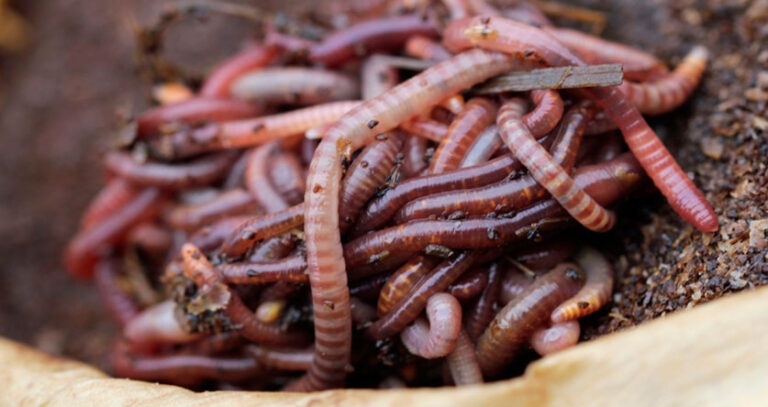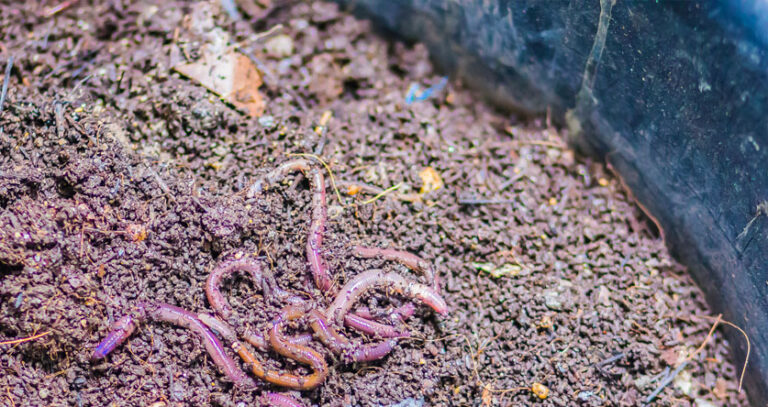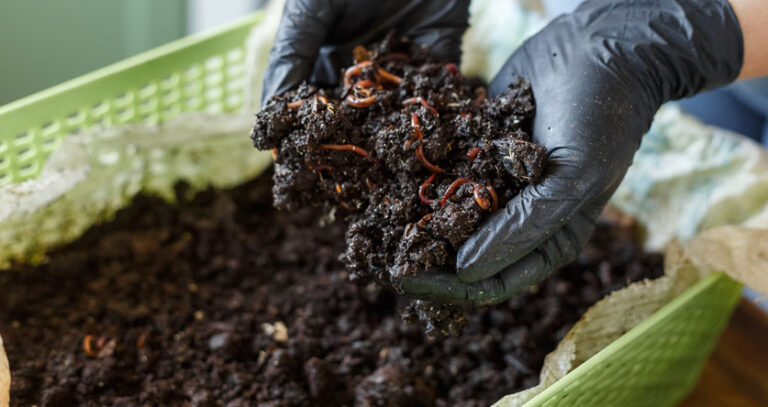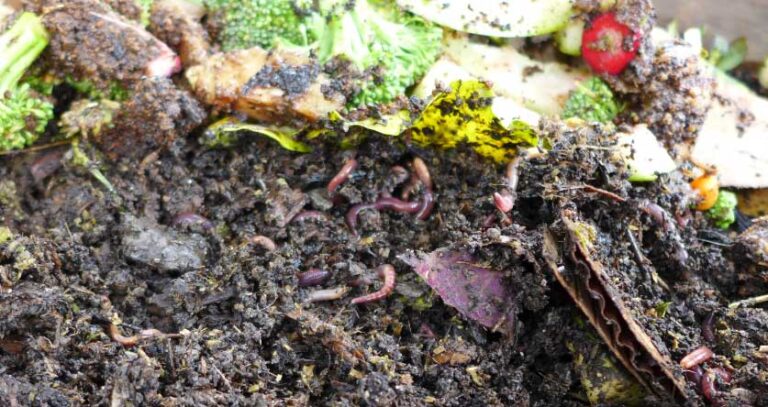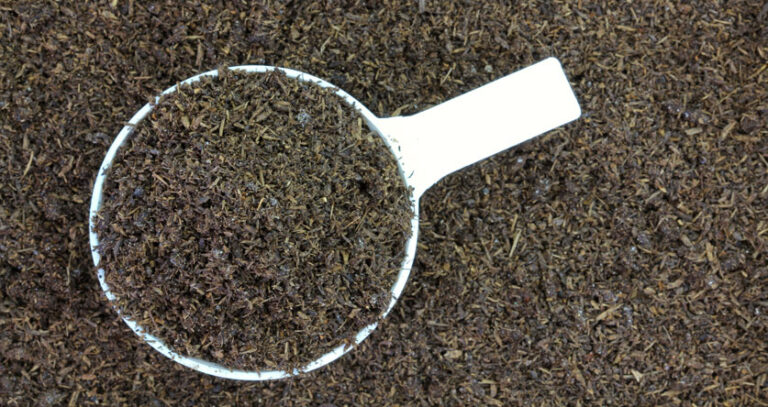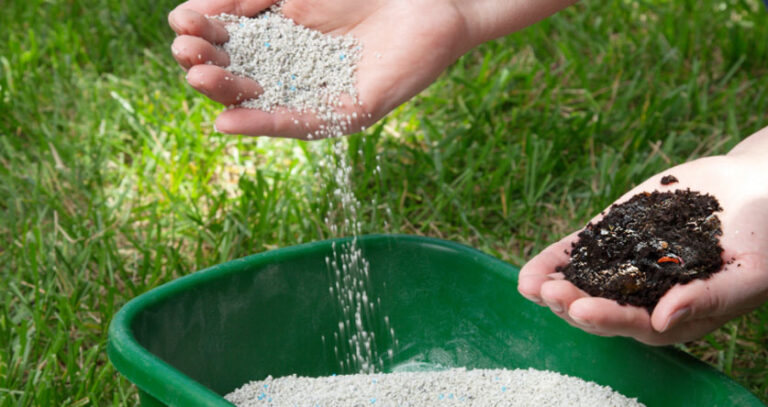What Nutrients Are In Worm Castings (You’ll Be Amazed!)
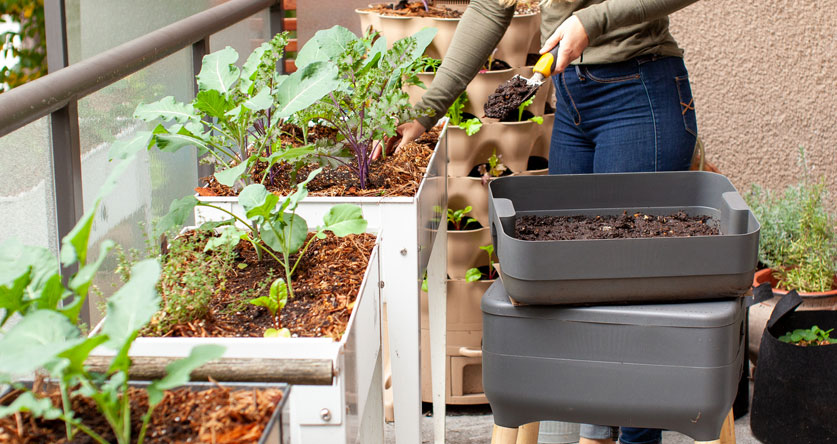
Only some people jump at the chance to start a worm bin.
If the thought of thousands of worms munching food scraps on the verge of rotting makes you uneasy, you might be one of the people who needs convincing that a worm bin is a good idea.
How’s this for a reason to drop your squeamishness and welcome composting worms into your home?
Worms are eco-superstars! They make nutrient-rich castings that boost plant health!
These castings contain essential plant nutrients such as nitrogen, phosphorus, potassium, and many more. They might even contain compounds that give plants special powers!
Join me as I break down what’s inside worm castings and explain why they’re an ultra-nourishing plant food.
What Nutrients Do Worm Castings Have?
Worm castings have all the primary nutrients (nitrogen, phosphorus, and potassium) plants need. Castings also contain secondary plant nutrients (calcium, magnesium, and sulfur) and micronutrients like zinc, copper, manganese, iron, borax, and cobalt.
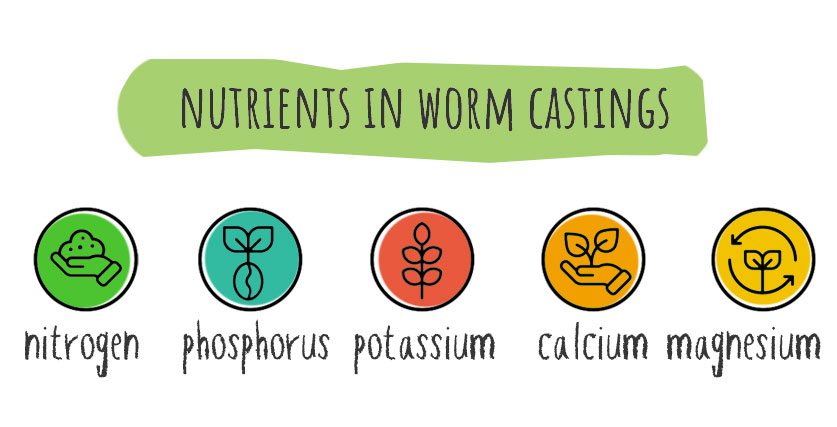
Worm castings give plants all the primary nutrients they crave. These mighty droppings have such an impressive range of nutrients that they’re considered an organic fertilizer in addition to a soil supplement.
Bonus: Worm castings might contain hormones, enzymes, and antibiotics that do wonders for plant health in addition to nutrients. Research shows these remarkable compounds give plants growing powers and protection against pests and diseases.
Discover more marvelous things worm castings can do for your plants.
Are Nutrients In Worm Castings Readily Available To Plants?
Not only are worm castings loaded with good stuff, but this goodness is easy for plants to take in. This is because worms’ digestive systems break down the nutrients into forms plants can instantly use.
Here’s what happens:

- A worm eats organic waste.
- The food is then ground down by a muscular part of the worm’s gut called a gizzard.
- Next, the ground-up organic waste mixes with enzymes in the worm’s intestine.
- The worm then uses whatever it can for its own needs.
- Finally, the moment we’ve been waiting for: the worm pushes out the leftovers as castings packed with plant-ready nutrients, little bits of organic wastes, and composting microorganisms.
You can help your worms produce quality castings by feeding them their preferred foods, giving them something gritty (like soil or used coffee grounds) to improve their digestion, and keeping their environment as moist as a wrung-out sponge.
Now let’s continue breaking down the macro and micronutrients in worm castings and why plants can’t live without them 🙂
What Is The NPK Value Of Worm Castings?
Worm castings give plants a generous helping of the 3 nutrients they need most.
These nutrients are nitrogen (N), phosphorus (P), and potassium (K). They’re called macronutrients because plants need them in more significant amounts compared to others.
Worm castings’ NPK value depends on whom you ask.
- The University of California Agriculture and Natural Resources puts the ratio at 5.5.3.
- Australia’s Griffith University research says the percentages are more like 2-3% nitrogen, 1.55-2.25% phosphorus, and 1.85-2.25% potassium.
- And research from 1986 found that the worm castings’ nitrogen content can soar to 7.37%, and phosphorus can be a whopping 19.58%.
Note: The study from 1986 looked at the nutrients in castings from worms that ate cow manure, so you’re unlikely to get these percentages in your apartment-made castings!
Whatever their exact NPK value, worm castings give plants a good dose of the nutrients they need to thrive. And they are in ready-to-use forms: nitrogen as nitrate, phosphorus as phosphates, and potassium as soluble potassium.
FYI: Worm castings’ NPK value is generally higher than what you’ll get in standard compost but lower than in chemical fertilizer.
Here’s why these 3 nutrients are plant essentials:
- Nitrogen is found in all plant cells and helps plants grow big and strong. This nutrient keeps plants green, and photosynthesis can’t happen without it.
- Phosphorus helps plants get energy from the sun, speeds up young plants’ development, grows robust roots, seeds, and fruit, and helps some plants fight diseases.
- Potassium makes plants tougher, so they’re less likely to become diseased. This nutrient can also help plants grow bigger and better grains, seeds, and fruit.
Are Worm Castings High In Nitrogen?
Worm castings are nitrogen rich. They have more nitrogen than standard compost and about 4 to 5% more nitrogen than typical garden soil.
Despite their substantial nitrogen content, castings won’t burn plants. Instead, plants stay safe because the nitrogen in castings is water-soluble and easily absorbed.
Worm castings’ hearty dose of nitrogen is perfect for your veggie patch or flower garden. They’ll get your leafy greens leafier and greener than they’ve ever been before!
What Minerals Are In Worm Castings?
Nitrate, phosphorus, and potassium are the primary nutrients and major mineral players in plant health, but plants need other nutrients too. We call these secondary nutrients, and worm castings have them all.
2 of the secondary nutrients are minerals:
- Calcium keeps roots healthy and grows new roots, root hairs, and lush leaves.
- Magnesium helps plants produce chlorophyll to photosynthesize and make food for themselves.
The other secondary nutrient is sulfur:
- Sulfur forms part of plants’ energy-making amino acids. This nutrient also gives plants like onion and cabbage their strong flavors and aromas.
Do Worm Castings Contain Micronutrients?
Yes, vermicompost also includes an extensive range of micronutrients. Plants need only a tiny amount of certain micronutrients. Worm castings provide most of these.
These are the micronutrients in castings and what they do for plants:
- Iron forms part of compounds that make plants grow.
- Manganese helps plants photosynthesize.
- Copper is a crucial part of plant enzymes.
- Zinc helps produce a hormone that makes stems grow longer and leaves get bigger.
- Borax helps build cell walls in fast-growing plants.
- Cobalt can boost plant growth.
Conclusion
Worm castings contain all the primary and secondary macronutrients, plus almost all the micronutrients for healthy, happy plants. Talk about a superfood!
Now that you know what nutrient-dense droppings worms produce, I can’t imagine you’ll ever shrug off castings as useless worm poop.
Far from it!
Worm castings hold great nutrition and maybe even seemingly magical compounds to power up your plants. So, go on and get yourself 1 000 or so of the most eco-friendly pets, composting worms!


